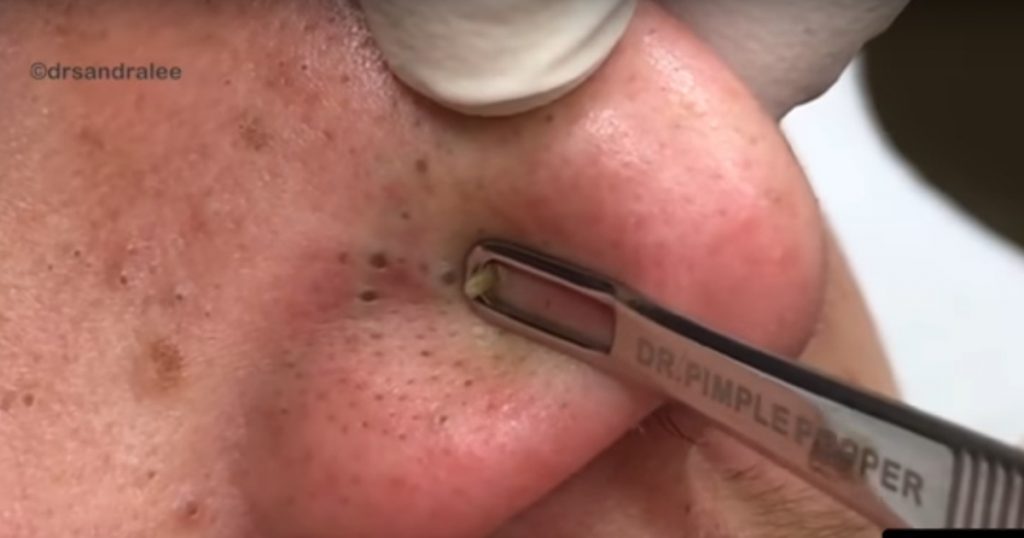Meet the Pimple Popper
We all battle acne at some point in our life.
We all want to squeeze our skin until those blackheads just pop out.
What’s important is to remember that dermatologist know best how to deal with this extremely common problem.
So don’t take matters into your own hands and just go see one!
Dr. Sandra Lee, dermatologist, is best known as the Pimple Popper.

According to Wikipedia, using non-oily cleansers and mild soap may not cause as much irritation to the skin as regular soap. Blackheads can be removed across an area with commercially available pore-cleansing strips or the more aggressive cyanoacrylate method used by dermatologists.
Squeezing blackheads and whiteheads can remove them, but it can also damage the skin. Doing so increases the risk of causing or transmitting infection and scarring, as well as potentially pushing any infection deeper into the skin. Comedo extractors are used with careful hygiene in beauty salons and by dermatologists, usually after using steam or warm water.

Complementary medicine options for acne in general have not been shown to be effective in trials. These include aloe vera, pyridoxine (vitamin B6), fruit-derived acids, kampo (Japanese herbal medicine), ayurvedic herbal treatments and acupuncture.
Some acne treatments target infection specifically, but there are treatments that are aimed at the formation of comedones as well. Others remove the dead layers of the skin and may help clear blocked pores.

Dermatologists can often extract open comedones with minimal skin trauma, but closed comedones are more difficult. Laser treatment for acne might reduce comedones, but dermabrasion and laser therapy have also been known to cause scarring.
Macrocomedones (1 mm or larger) can be removed by a dermatologist using surgical instruments or cauterized with a device that uses light. The acne drug isotretinoin can cause severe flare-ups of macrocomedones, so dermatologists recommend removal before starting the drug and during treatment.
Some research suggests that the common acne medications, retinoids and azelaic acid, are beneficial and do not cause increased pigmentation of the skin.